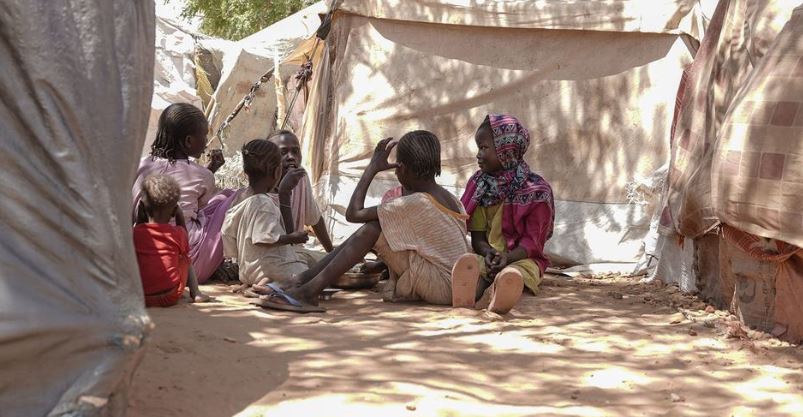A large number of war-displaced individuals fleeing clashes between the Sudanese Armed Forces (SAF) and the Rapid Support Forces (RSF) in Al-Fasher, the capital of Sudan’s North Darfur State, have arrived in Al-Kuma, a locality about 70 kilometers east of Al-Fasher.
This area is situated on the main Western Inqaz Road which connects Darfur to the Sudanese capital, Khartoum.
The number of displaced persons from Al-Fasher in Al-Kuma Locality has now reached 43,000 and they are living in 23 sheltering facilities in dire humanitarian conditions, necessitating urgent humanitarian intervention.
Salih Haririn, the head of the Emergency and Services Committee in Al-Kuma, told this publication that the humanitarian situation of the displaced people is extremely dire.
“After they fled following the recent battles in Al-Fasher, there has been a large influx of displaced people into the locality which is the closest to the state capital,” he recounted. ”They are now experiencing severe hardships, including acute shortages of food and water, and lack shelter materials yet the rainy season is approaching.”
Haririn explained that the locality is suffering from a safe drinking water crisis, exacerbated by the administrative vacuum created by the governor’s recent decision to dismiss the executive director of Al-Kuma without appointing a new one, leading to administrative disarray. Before this dismissal, the locality was providing essential services, including water.
“Al-Kuma is facing complex humanitarian challenges that require immediate intervention from organizations and we appeal to them to urgently intervene,” he said. “However, the ongoing battles in Al-Fasher have affected the arrival of organizations to the locality.”
According to sources on the ground, Al-Kuma is currently relatively stable although one of the sheltering houses was targeted by airstrikes, leading to the injury of some displaced persons and causing further displacement within the locality to nearby administrative units.




